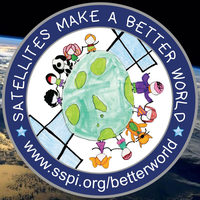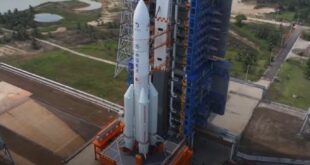
Ibadan, 23 April 2024. – Space & Satellite Professionals International (SSPI) has announced the beginning of Invisible, Indispensable Infrastructure, a multi-week campaign featuring videos, podcasts, live conversations and a new issue of SSPI’s digital magazine, The Orbiter. The campaign explores the little-known, frequently surprising ways in which satellite technology contributes to life, health, welfare and the economy on Earth.
The campaign begins this week with the first episode of a new podcast series, underwritten by SES, featuring an interview with Karl Horne, SES VP of Digital and Cloud Solutions. Furthermore, SSPI-WISE (SSPI Women in Space Engagement) will conduct a panel session of women experts to discuss how satellite technology contributes to modern life and progress. SSPI will consequently publish new Invisible, Indispensable Infrastructure content weekly here.
Speaking on the new campaign, director of engagement Tamara Bond-Williams said, “Our new campaign offers valuable insights to students, new hires, customers and investors in our industry – and a few surprises even for those who have worked in satellite for years. We thank the many corporate and individual members who have helped us bring the campaign forward.”
Space & Satellite Professionals International is on a mission to make the space and satellite industry one of the world’s best at attracting and engaging the talent that powers innovation. Likewise, SSPI helps the industry attract, develop and retain the talented people it needs to keep the engine turning. People who connect through high-profile events and gain recognition from prestigious awards. People who rely on SSPI for a broader understanding of the industry as much as for individual networking and career mentoring. From young people seeking a career path to industry veterans with wisdom to share.
 SpaceWatch.Global An independent perspective on space
SpaceWatch.Global An independent perspective on space




